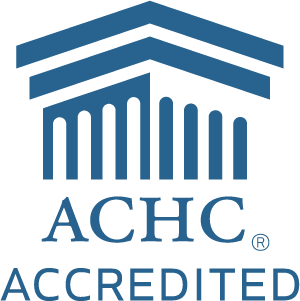Living with a genetic bleeding disorder has many challenges, not just for the individuals diagnosed with the condition but also for their caregivers. Hemophilia caregivers are vital in managing the daily needs, emotional support, and medical care of those living with a bleeding disorder. In this blog post, we’ll explore the invaluable contributions of hemophilia caregivers and why it’s important to recognize and appreciate their efforts.
Understanding Hemophilia
Before discussing the role of caregivers, let’s briefly talk about what hemophilia is. It’s a genetic disorder characterized by the body’s inability to clot blood properly, leading to prolonged bleeding even from minor injuries. Managing hemophilia requires careful attention to prevent bleeding episodes, administer clotting factor replacements, and navigate potential complications.
The Role of Hemophilia Caregivers
Genetic bleeding disorder caregivers are often family members or close friends who support and assist individuals with hemophilia.
Their responsibilities may include:
- Daily Care: Caregivers help with everyday tasks such as administering medication, assisting with treatments, and ensuring a safe environment to prevent injuries that could lead to bleeding episodes.
- Emotional Support: Living with a chronic condition like hemophilia can be emotionally taxing. Caregivers offer a listening ear, encouragement, and companionship to help their loved ones navigate the emotional challenges of bleeding disorders.
- Advocacy: Caregivers advocate for individuals with hemophilia, ensuring they receive proper medical care, access to treatment, and accommodations in various settings, including healthcare facilities and schools.
- Education: They play a crucial role in educating the individual with hemophilia and others in their support network about the condition, its management, and how to respond to emergencies.
- Coordination of Care: Caregivers often support by talking to healthcare providers, insurance companies, and support organizations to coordinate appointments, manage medications, and access necessary resources for their loved ones.
Recognizing Their Contributions
The contributions of hemophilia caregivers are immense and often go unnoticed.
Here’s why it’s essential to recognize and appreciate their efforts:
- Unwavering Dedication: Genetic bleeding disorder caregiving is a round-the-clock commitment that requires immense dedication, sacrifice, and resilience. Recognizing caregivers acknowledges their unwavering support and the sacrifices they make to ensure the well-being of their loved ones.
- Emotional Impact: Caring for someone with a chronic illness can take a toll on a caregiver’s mental and emotional well-being. Recognition and appreciation validate their experiences, reduce feelings of isolation, and promote mental wellness.
- Fostering Supportive Communities: By acknowledging the contributions of hemophilia caregivers, we foster a culture of support and gratitude within the hemophilia community. This acknowledgment encourages solidarity, empathy, and mutual assistance among caregivers and individuals affected by hemophilia.
- Raising Awareness: Recognizing hemophilia caregivers also raises awareness about the challenges faced by individuals living with the condition and their families. It highlights the importance of support networks, access to resources, and advocacy efforts to improve the quality of life for those affected by hemophilia.
Ways to Recognize Hemophilia Caregivers
There are various ways to show appreciation for hemophilia caregivers:
- Express Gratitude: A simple “thank you” can go a long way in acknowledging the efforts of caregivers and expressing gratitude for their support.
- Offer Support: Offer practical support by helping with daily tasks, providing respite care, or simply being there to listen when needed.
- Celebrate Caregiver Appreciation Days: Organize events or initiatives to celebrate caregivers and raise awareness about their contributions to the hemophilia community.
- Share Their Stories: Provide platforms for caregivers to share their experiences, challenges, and triumphs, amplifying their voices and fostering understanding within the community.
Hemophilia caregivers are the unsung heroes in the journey of individuals living with this challenging condition. Recognizing and appreciating their contributions is essential for their well-being and building a supportive and empathetic community.
Let’s keep honoring and supporting hemophilia caregivers as they navigate the challenges of caregiving with love, dedication, and strength.
For more hemophilia resources, check out our blog section!
Personalized Care,
Professional Excellence
Improving Your Quality of Life Is Our Mission





